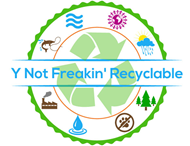[ad_1]
Key international climate talks due to take place in the UK in November have been postponed until next year, it has been announced.
The Cop26 meeting was set to take place at Glasgow’s Scottish Events Campus – which is being turned into a temporary Covid-19 field hospital – from November 9 to 20.
But an announcement from the UN’s climate body, the UNFCCC, and the UK government said the summit would be pushed back to 2021 in light of the coronavirus pandemic.
Action
The decision to postpone was taken by the UNFCCC with the UK and its Italian partners in hosting Cop26, with dates in 2021 set out after further discussion.
Dr Richard Dixon, Friends of the Earth Scotland director, said “Given the worldwide health dangers of coronavirus, it is understandable that the UN climate negotiations in Glasgow have been delayed.
“However, rich countries must not use the delay in the talks to delay taking urgent action on reducing emissions and providing climate finance for developing countries.
“Because the climate crisis is very urgent, COP26 needs to take place in the first half of 2021 and COP27 should still happen as planned that autumn.
“The climate talks should go ahead as soon as it is safe to hold them, but it is essential that they do so on the basis that global south nations are able to fully attend and demand the action necessary to deal with the climate emergency. This means full access for global south nations, experts and activists.
Vulnerability
Rachel Kennerley, international climate campaigner for Friends of the Earth England, Wales and Northern Ireland, added: “We are now faced with two immediate crises, COVID-19, while the climate crisis has not gone away.
“While postponement of the climate talks is a loss to international climate action, it doesn’t give governments a way out of facing their responsibilities. To stop climate breakdown, we need international cooperation whenever the talks happen.
“People and communities around the world are already building solutions to the climate crisis. Now, during a pandemic, people and communities are showing again that huge change is possible.
She concluded: “People will continue to find solutions to these crises and show what works and governments should follow their lead because there is a way out of both crises if we collaborate, listen to the science, and stop losing time.”
Kat Kramer, Christian Aid’s global climate lead said: “Many of the most vulnerable people in the world are already living through one emergency and climate impacts only increase this vulnerability.
Groundwork
“Countries still need to submit their enhanced climate plans by the end of year to be in line with the scientific imperative of limiting heating increases to 1.5C.”
John Sauven, Greenpeace UK executive director, said that while the summit has been delayed, the climate emergency could not be put on hold.
“The government stimulus packages will hold the key to whether this emergency significantly delays or advances progress on tackling the climate emergency.”
He warned that neither Covid-19 nor the climate and nature emergencies could be solved without governments, scientists and civil society working together.
A mid-year UN climate meeting scheduled for June in Bonn, Germany, which would have laid groundwork for the November talks, has been delayed to October.
Challenge
Cop26 is the most important round of talks since the global Paris Agreement to tackle climate change was secured in 2015.
This year marks the date by which countries are expected to come forward with stronger emissions cuts to meet the goals of the deal.
Plans submitted so far put the world on a pathway towards more than 3C of warming, though the Paris Agreement commits countries to curb temperatures to 1.5C or 2C above pre-industrial levels to avoid the worst impacts of climate change.
But with countries around the world grappling with coronavirus, and many putting citizens in lockdown, governments are prioritising the immediate global health crisis.
Alok Sharma, the business and energy secretary said: “The world is currently facing an unprecedented global challenge and countries are rightly focusing their efforts on saving lives and fighting Covid-19. That is why we have decided to reschedule Cop26.
Pandemic
“We will continue working tirelessly with our partners to deliver the ambition needed to tackle the climate crisis and I look forward to agreeing a new date for the conference.”
UN climate chief Patricia Espinosa said: “Covid-19 is the most urgent threat facing humanity today, but we cannot forget that climate change is the biggest threat facing humanity over the long term.
“Soon, economies will restart. This is a chance for nations to recover better, to include the most vulnerable in those plans, and a chance to shape the 21st century economy in ways that are clean, green, healthy, just, safe and more resilient.”
Holding an “ambitious, inclusive” meeting in November was no longer possible, and rescheduling would allow countries to focus on climate and allow more time for preparations, the UN and the UK said.
Dates for key international meetings addressing declines in wildlife are also being shifted due to the pandemic.
Transition
Climate campaigners said the delay to Cop26 was sensible and unavoidable, but warned the response to Covid-19 should not undermine efforts to address the climate crisis.
Economic stimulus packages to help countries recover from the pandemic need to tackle climate change, they urged.
Nicola Sturgeon, the Scottish First Minister, tweeted: “A disappointing decision, but absolutely the right one as we all focus on the fight against #coronavirus. We look forward to welcoming the world to Glasgow in 2021 #COP26.”
Adair Turner, Senior Fellow at the Institute for New Economic Thinking (INET), said: “The pandemic will reorder to an extent the priorities for COP26, as alongside the UN climate process countries will be devising stimulus packages for economies hard-hit by the crisis.
Clearly, governments around the world have an opportunity to craft support for a range of sectors, from energy to industry and transport, that promotes the transition to a low-carbon economy that member states are already committed to.
Threats
“With low-carbon stimulus as a new priority for COP26, it should be seen as an opportunity to rebuild economies hit by coronavirus in ways that are healthier, more resilient to future shocks and fairer to a wider range of people.”
Professor Joanna Haigh, Emeritus Professor of Atmospheric Physics, Imperial College London said: “With the postponement of COP26 governments must not lose sight of the ongoing global crisis that is climate change, which also threatens people’s way of life around the world.
“Although the current suspension of much economic life will lead to a temporary slowdown in emissions, experience suggests levels will bounce back without action to address them.
“Once countries are able to look beyond the pandemic, therefore, a concerted international effort to reduce emissions and prevent climate catastrophe will be necessary, feasible and urgent.”
Camilla Toulmin, senior associate at the IIED, said: “We must remember that people in the least developed countries are the most vulnerable and least able to cope with the threats of both coronavirus and climate change, and will need help in the face of both of these threats.
Lessons
“We should hope therefore that this breathing space for COP26 can lead to a renewed commitment to find the funds necessary for building climate resilience across the world, long-promised to poorer counties by richer ones, and that people and their leaders will have a new appreciation of common futures and the challenges which pull us together.”
Professor Michael Grubb, Professor of International Energy and Climate Change Policy, UCL said: “The [coronavirus] crisis reminds us of the need to heed scientific warnings and projections, and of the – perhaps unexpected – vulnerability of even the strongest societies.
“It also shows the scale and speed of response that is possible when societies really face up to such risks.
“Deferring COP26 will offer an opportunity for the world to take stock of the lessons, and also to integrate better with the global Biodiversity summit, to start a new chapter in tackling the threats to the planetary systems on which we all ultimately depend.”
These Authors
Brendan Montague is editor of The Ecologist. Emily Beament is the PA environment correspondent.
Source link
Y Not Freakin’ Recyclable Home
 Pollution Climate Change Holocene Deforestation Population Acidification Y Not Freakin' Recyclable
Pollution Climate Change Holocene Deforestation Population Acidification Y Not Freakin' Recyclable



